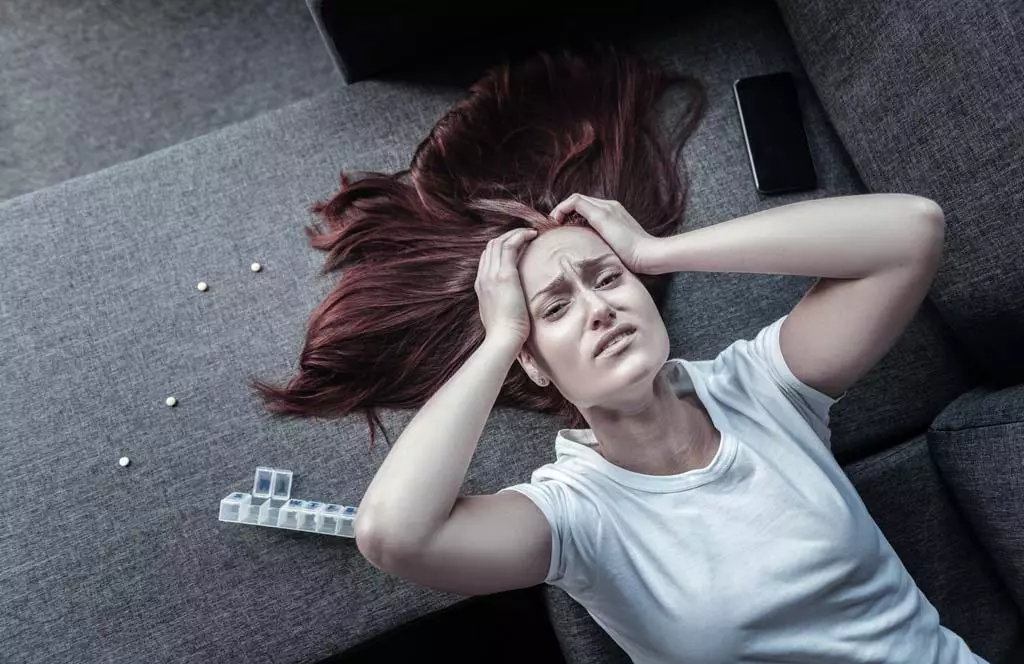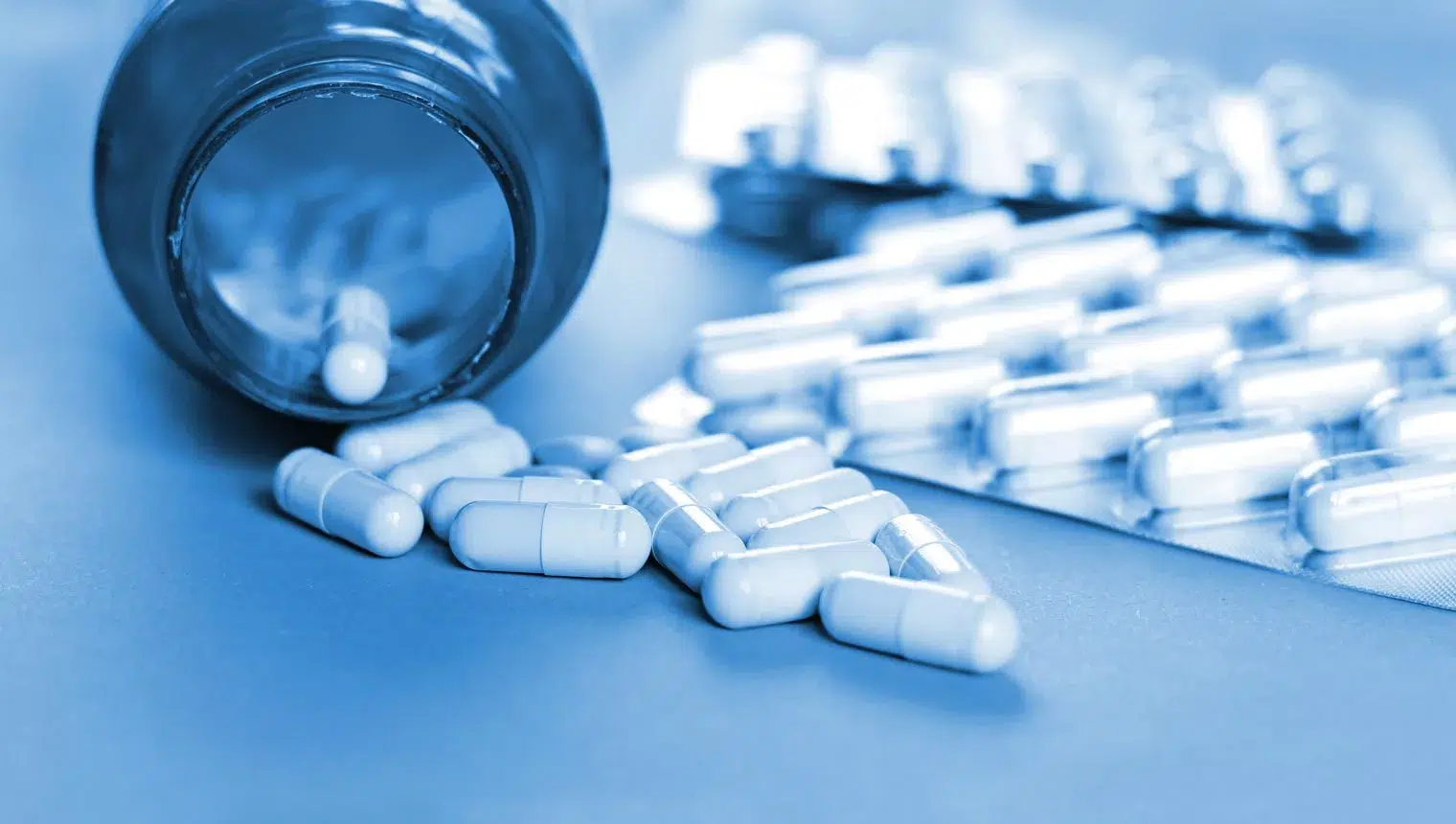
Can Antidepressants Help Addiction?
Antidepressants have long been used to treat mental disorders. Over the years, their adoption has led to in-depth research about how these drugs can aid someone seeking to overcome these illnesses.
Depression is one of the most prevalent mental illnesses afflicting persons across the world in the modern day. According to the WHO, an estimated 3.8% of the global population suffers from depression. That is over 280 million persons! This figure is significant.
Thanks to these research paths, we now have the drugs that can help manage certain mental conditions. Alongside other forms of therapy, such as talk therapy, an individual can overcome their mental illness and return to a healthy and vibrant life.
Prescription Drug Medical Help – Call 24/7
What are the types of antidepressant medication?
Table of Contents
Given the widespread problem, it is not surprising that the medical field has researched and developed pharmaceuticals to treat various forms of depression. These often alter the brain chemistry and are usually combined with therapy to treat the underlying circumstances or thought patterns that have resulted in or contributed to the clinical depression in the first place.
Most antidepressants prescribed in the modern-day fall into two general categories: selective serotonin reuptake inhibitors (SSRIs) and tricyclic antidepressants (TCAs). SSRIs are one of the most prescribed antidepressants, with more than 20% of people receiving antidepressant treatment using this medication. SSRIs block the absorption of extracellular serotonin by increasing its concentration in the synapse between neurons.
The neurotransmitter is then free to stimulate receptor sites on other neurons, causing a chain reaction that ultimately produces feelings of well-being. The significant difference between the two is that TCAs affect norepinephrine more than serotonin levels.
Why do antidepressants get used so often in rehab centers?
The use of antidepressants in rehab centers is quite common. Approximately 80% of patients with a substance use disorder also suffer from some type of mental illness. It could result from circumstances, environment, trauma, stress, genetics, or often a combination of those factors.
Yet, it remains essential to treat both issues simultaneously if true and lasting recovery is sought. This is not something new or niche. Commonly, depression and anxiety are core causes of substance abuse. Substance abuse in and of itself is a risk factor for depression. Given the very interconnected nature of these issues, it only makes sense to treat them concurrently.
Antidepressants as a form of medication-assisted treatment.

Throughout the United States, there is a significant stigma surrounding antidepressants. Many believe that psychotropic medications like antidepressants are only for treating mental illness. These drugs are used as medication-assisted treatment (MAT) to promote recovery from substance use disorder.
Antidepressants can help stabilize mood and reduce cravings, making it easier for someone to seek treatment for their substance use disorder. Moreover, antidepressants are most effective when combined with other forms of MAT like behavioral therapy and drug detoxification. These studies highlight how important it is for those suffering from substance use disorder to get the proper treatment to overcome their addiction.
When discussing the pros and cons of antidepressants in treating substance use disorders, it’s important to note that they are not a cure-all. There is a strong correlation between depression and substance abuse, so it makes sense that people suffering from both conditions would respond better to treatments that address both problems at once (such as therapy) rather than just one (medication).
Addressing underlying conditions during addiction treatment
Amid a struggle with addiction, it can be difficult for the client to see beyond the immediate problems and focus on the underlying issues that caused them to turn to drugs or alcohol in the first place. The co-occurrence of mental illness and substance abuse is common enough that it’s often referred to as a comorbid condition.
While people with both conditions are likely to receive treatment for their addiction, the severity of their mental health condition can be overlooked. For instance, it can be assumed that the substance abuse led to problems in the patient’s life or caused chemical imbalances that caused or contributed to their mental health issues. Treatment becomes less effective when the two conditions are not treated simultaneously because patients may not fully recover from their addiction without treating their other disorders.
Medical Detox Hotline – Immediate Help
The risks of antidepressant medications
Antidepressants are effective for treating depression, but some people experience problems when they stop taking them. Antidepressants have been linked to an increased risk of suicide attempts and completed suicides in children, adolescents, and young adults who take them.
However, the risk is higher among those with a personal or family history of these behaviors, other psychiatric disorders, depression, or alcohol or substance abuse problems. In 2011, the FDA issued a safety communication on antidepressant use in children under 18 years old because of this risk.
Aside from that most severe risk, there are often common side effects of antidepressants, including but not limited to; nausea, vomiting, diarrhea, insomnia, and sexual dysfunction. Other less common side effects of antidepressants include weight gain, high blood sugar levels, low blood pressure, agitation, and anxiety.
The benefits of antidepressants in helping addiction recovery.
Studies have shown that using antidepressants can improve a patient’s chances of recovery from addiction. Several studies indicate that patients receiving antidepressant treatment in conjunction with substance abuse counseling had a significantly higher success rate than those receiving counseling alone.
The link between addiction and depression is well established. According to the National Institute on Drug Abuse, approximately one-third of people who suffer from addiction also suffer from clinical depression or anxiety. Appropriate treatment for these symptoms is essential to recovery.
Dual diagnosis treatment and the need for medication

As the stigma against mental illness slowly diminishes, more and more people are choosing to get help for their mental disorders. The co-occurrence of mental illness and substance abuse is common, and in many situations, it is essential to treat both issues in tandem. To do this successfully, a comprehensive care plan must be created that achieves two goals: treating the illnesses simultaneously and avoiding medication interactions.
Medications for mental health issues can have serious side effects. These medications can interact with medications used to treat substance abuse. This can lead to intense complications like overdose, which can cause significant damage or even death. On the other hand, not taking any medications to treat mental illness can also lead to severe problems such as relapse.
The solution is dual diagnosis treatment that uses an integrated model of care. This model considers the co-occurrence of these two disorders and how that might affect treatment efficacy on both sides of the spectrum without causing dangerous side effects from medication interactions. A program based on this model will consider all aspects of your care, including all medical needs (such as dental, physical therapy, etc.) and all psychiatric needs (such as therapy).
Free Mental Health Assessment
Achieving stability in the early stages of recovery.
After a long stint of compulsive addiction, most people will eventually find themselves in the terrifying position of having to stop and get clean. It’s an experience that is not just isolating but also disorienting, as your body goes through a series of withdrawal symptoms that can last anywhere from a few days to several months. The road to recovery is also fraught with various pitfalls that can make achieving stability seem impossible—and without stability, relapsing becomes all the more likely.
Setting yourself up in a stable stage of recovery is critical to success in recovery. Stable living conditions help protect you from temptations and keep you focused on getting clean. A stable environment helps ensure that you have the emotional resources and the willpower to stick to your plan for recovery instead of letting yourself slide back into addiction.
Sobriety requires specific shifts in perspective if you want to be successful. Instead of focusing on what might be missing in your life, you need to center yourself around gratitude for all the people and things you have.
There is no better way to feel grateful than to list everything good in your life—things like your health, your friends and family, and even your newfound sobriety. This may sound overly simplistic, but it’s an exercise many people who find themselves in rehab or at a 12-step meeting can benefit from daily.
Find long-term recovery through a holistic rehab approach.

In most traditional treatment programs, recovering individuals undergo detoxification, which is intended to cleanse the body of harmful substances. However, this only treats the physical symptoms of addiction; it does not address the underlying psychological issues associated with long-term drug use.
This is where holistic rehab comes in; it focuses on treating both the physical and mental aspects of addiction, helping individuals learn new methods of coping with stress or painful emotions while also removing them from their environment, so they are not tempted to use drugs again.
Holistic rehabs offer long-term solutions to substance abuse problems by looking at each person as a whole being without ignoring any aspects of their lives. This approach works because it addresses the totality of the individual.
Find Holistic Rehab Treatment
Reasons to Treat Depression at a Holistic Rehab
In attempting to address the individual as a whole, aside from the application of medication, the client usually receives some talk-based therapy to identify, unpack and process underlying trauma. Also, the development of healthy habits such as exercise and meditation may be encouraged and explored to help the client regain control over their baseline emotional states.
The holistic approach to overcoming addiction and recovery is perhaps the closest we have come to treating addiction and its underlying causes honestly and effectively. By considering the physiology, psychology, trauma, and environmental factors at play, a holistic approach gives the client the best chance of proper rehabilitation.
To learn more about the positive outcomes we have helped clients achieve, or to inquire about availability for you or your loved one, please reach out to the Admissions staff at Emerald Isle Health and Recovery. They are ready and waiting to speak with you about a brighter future!








